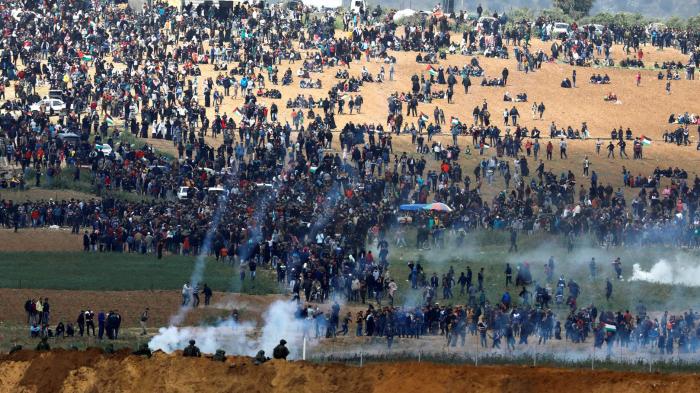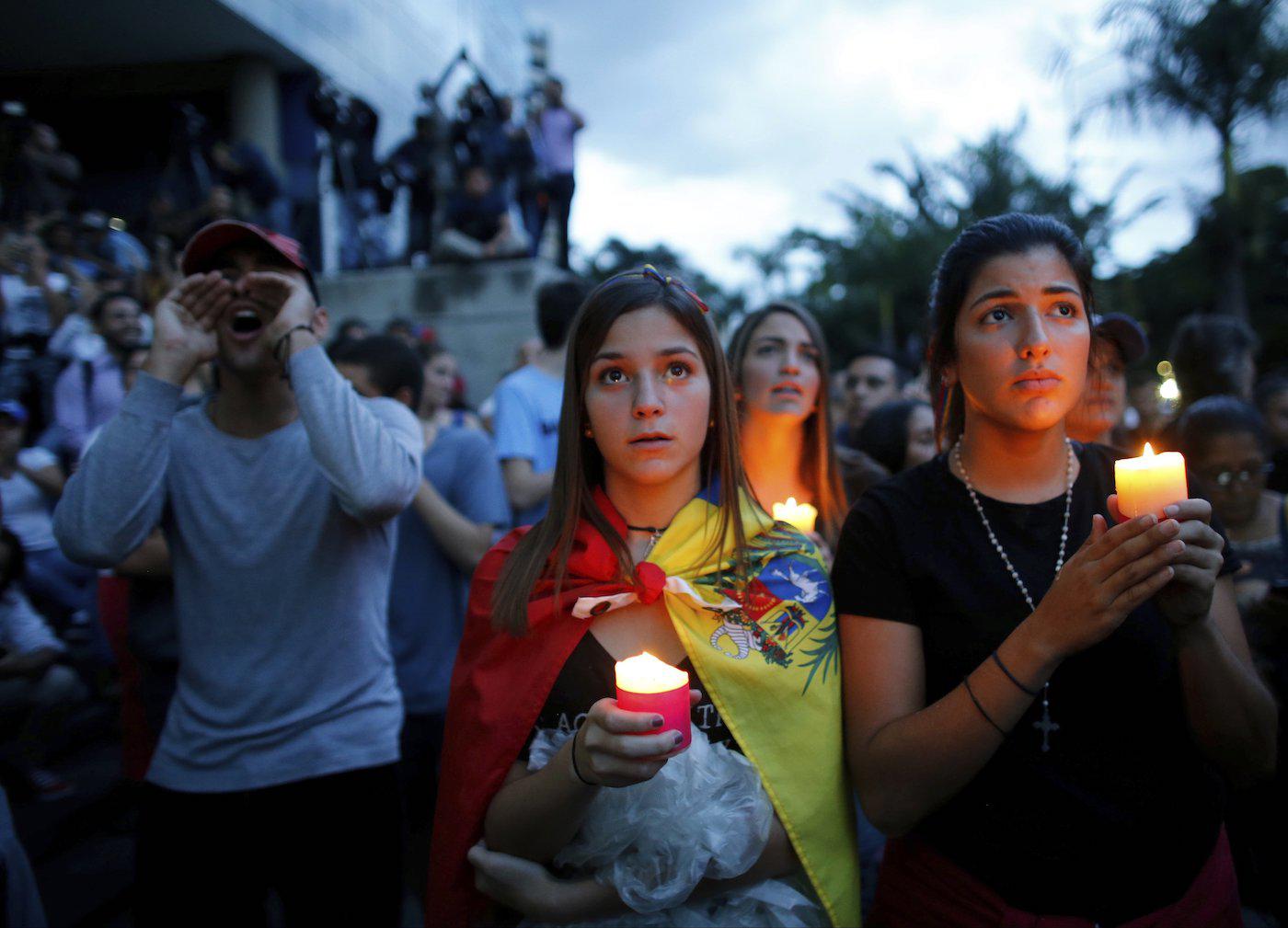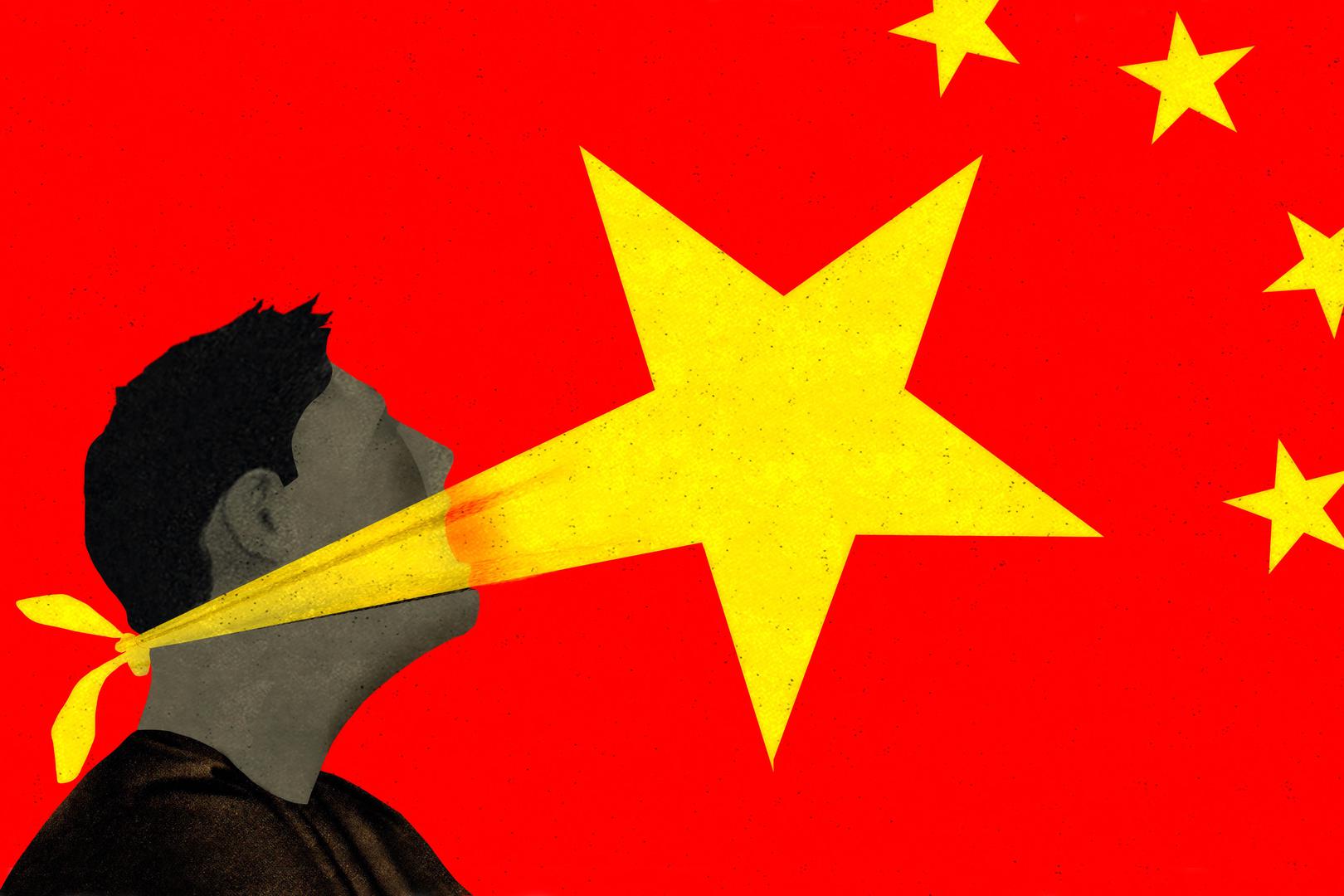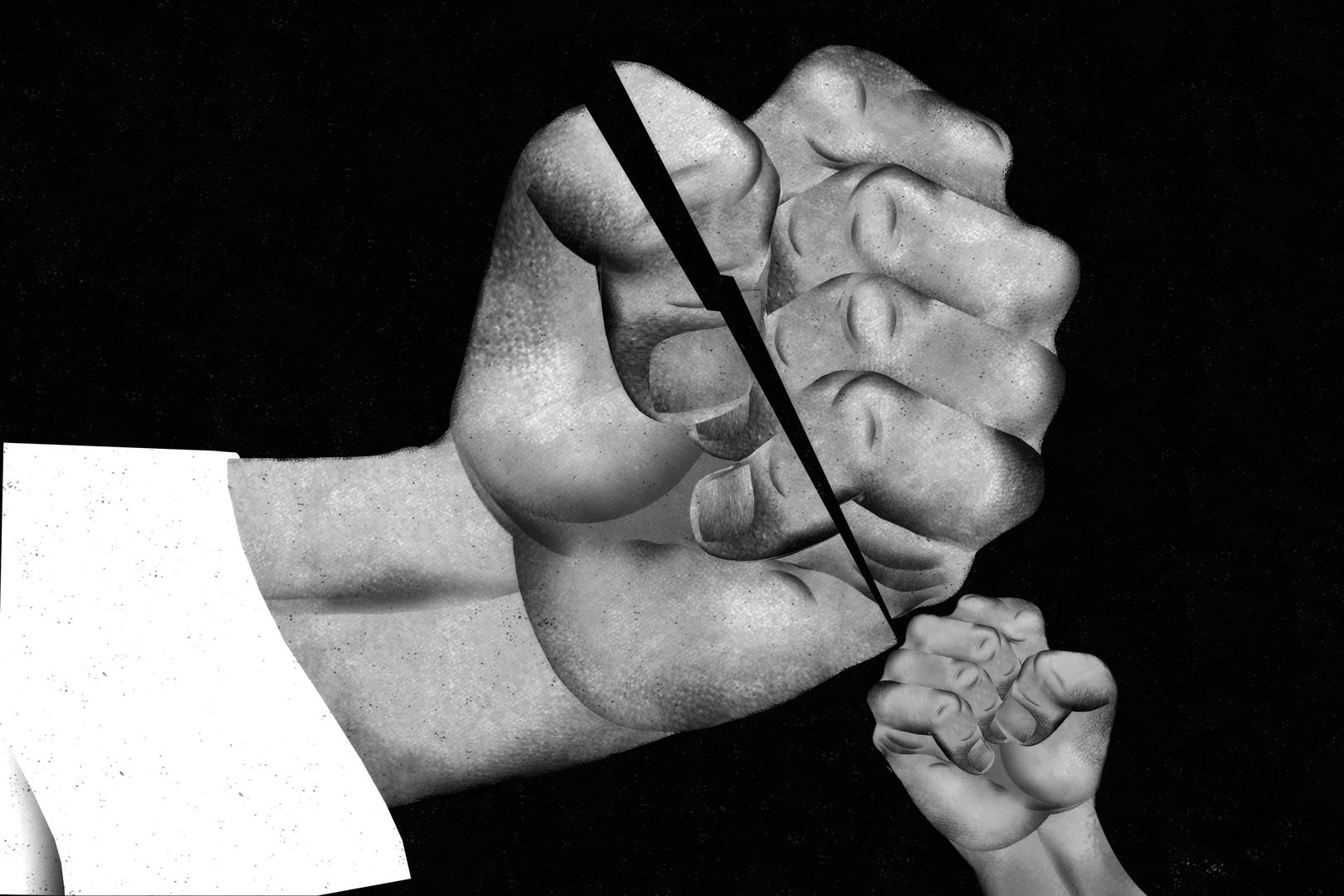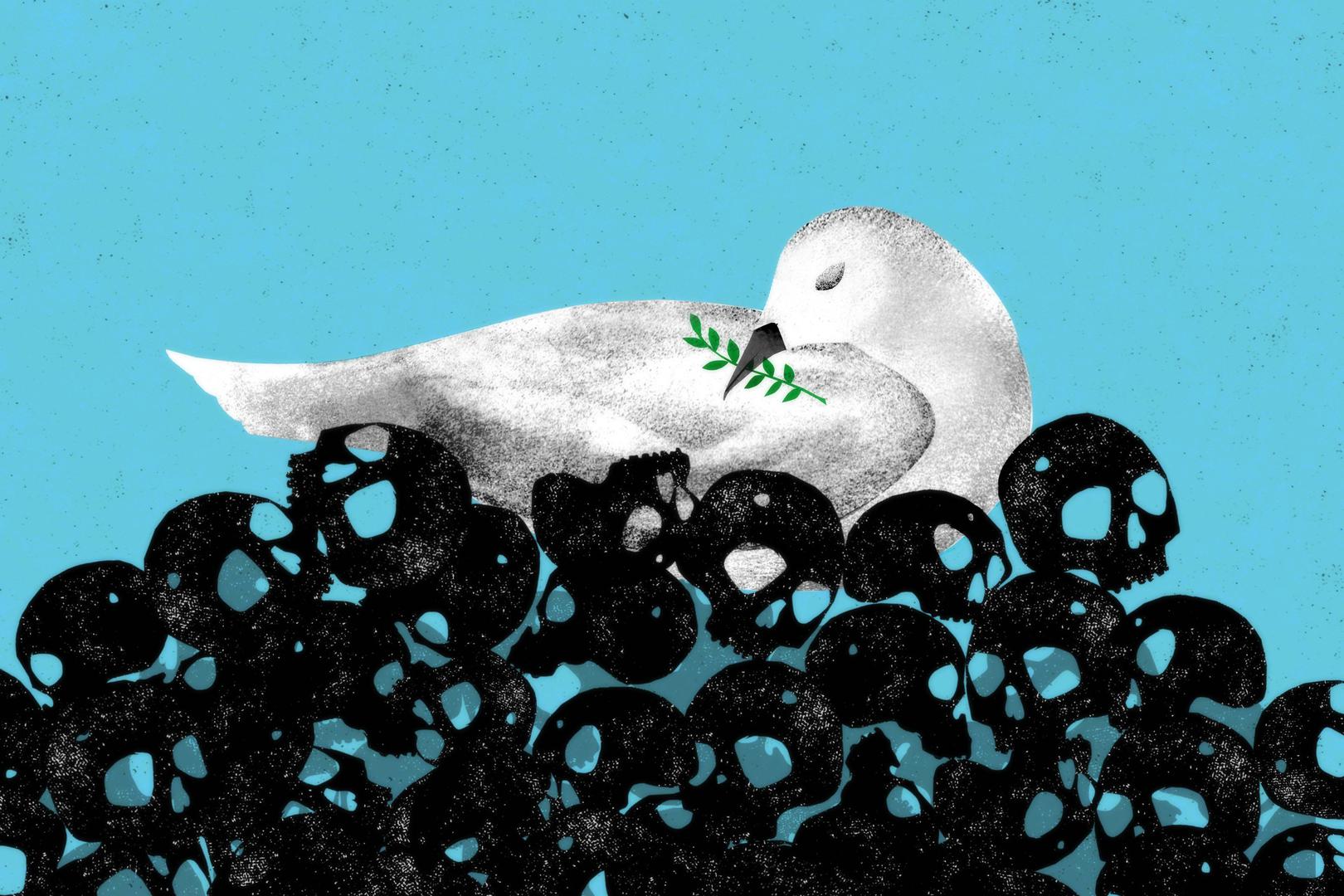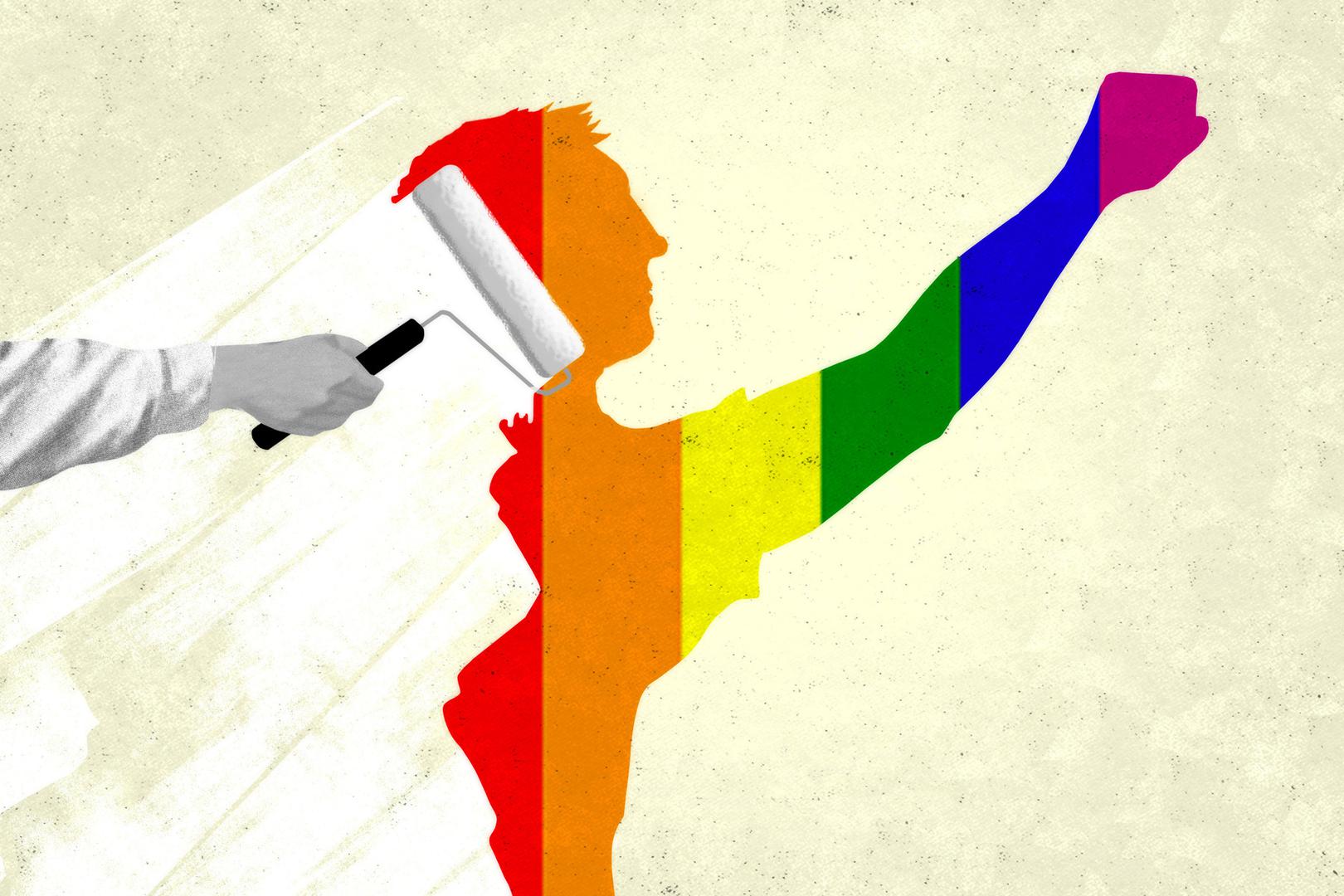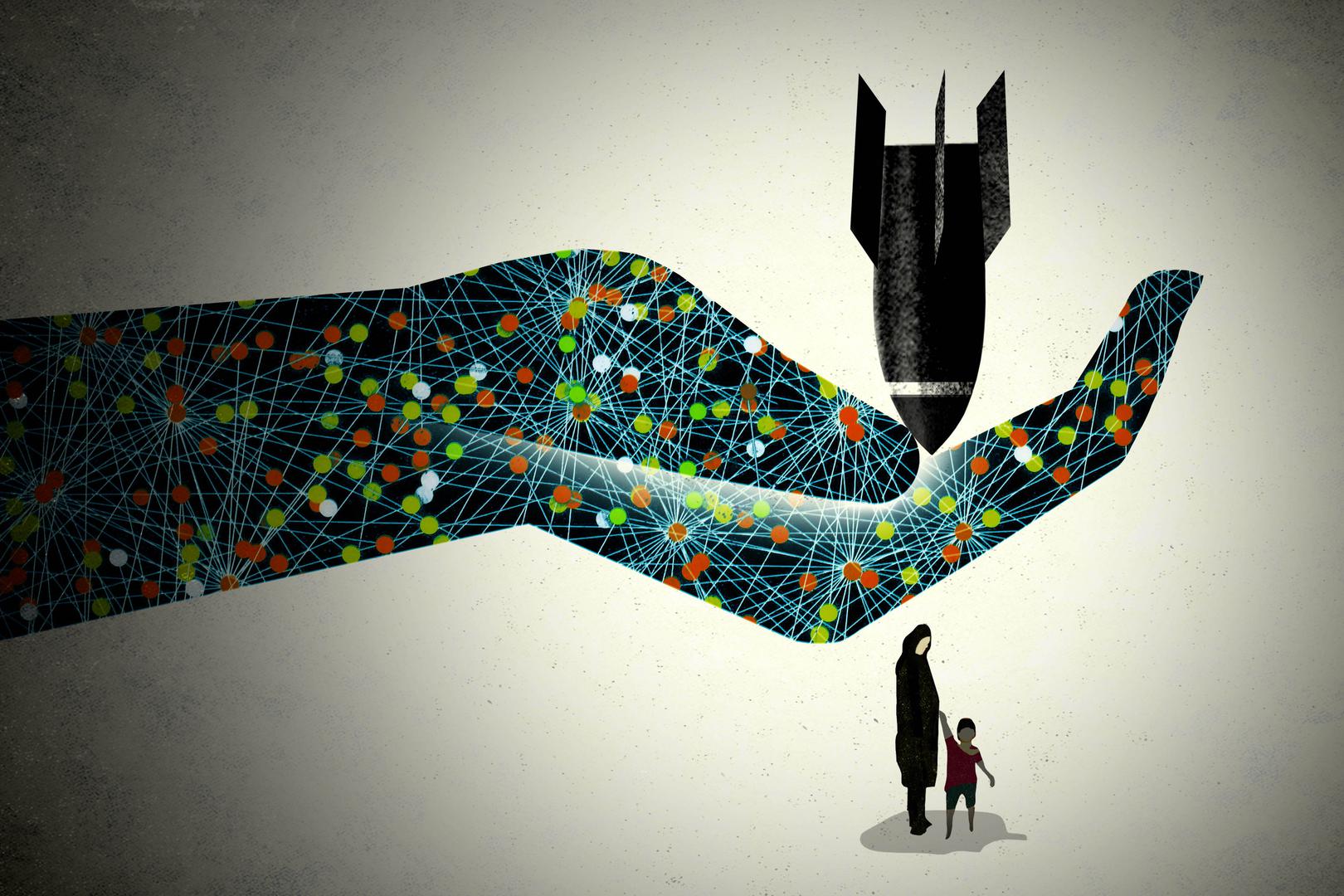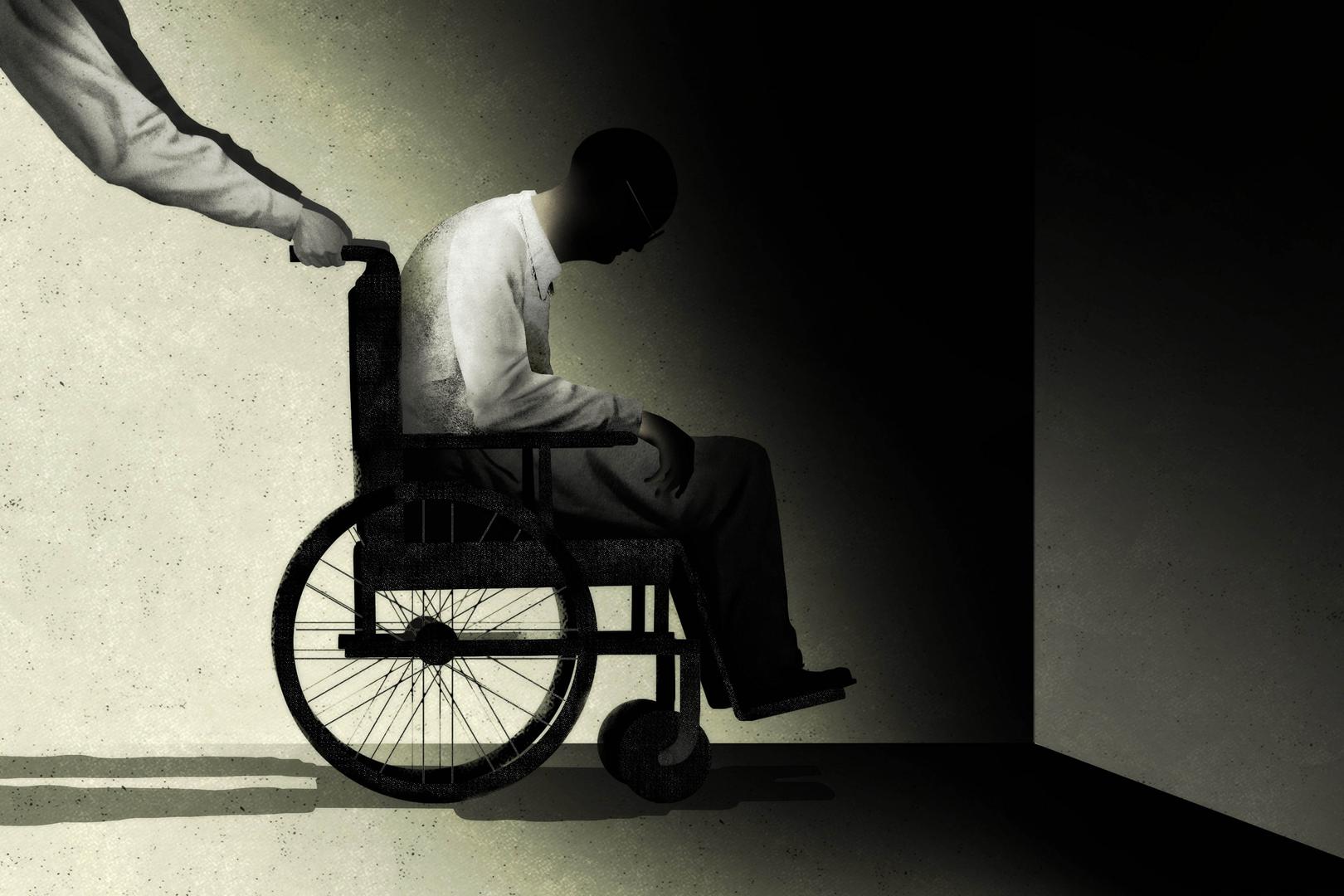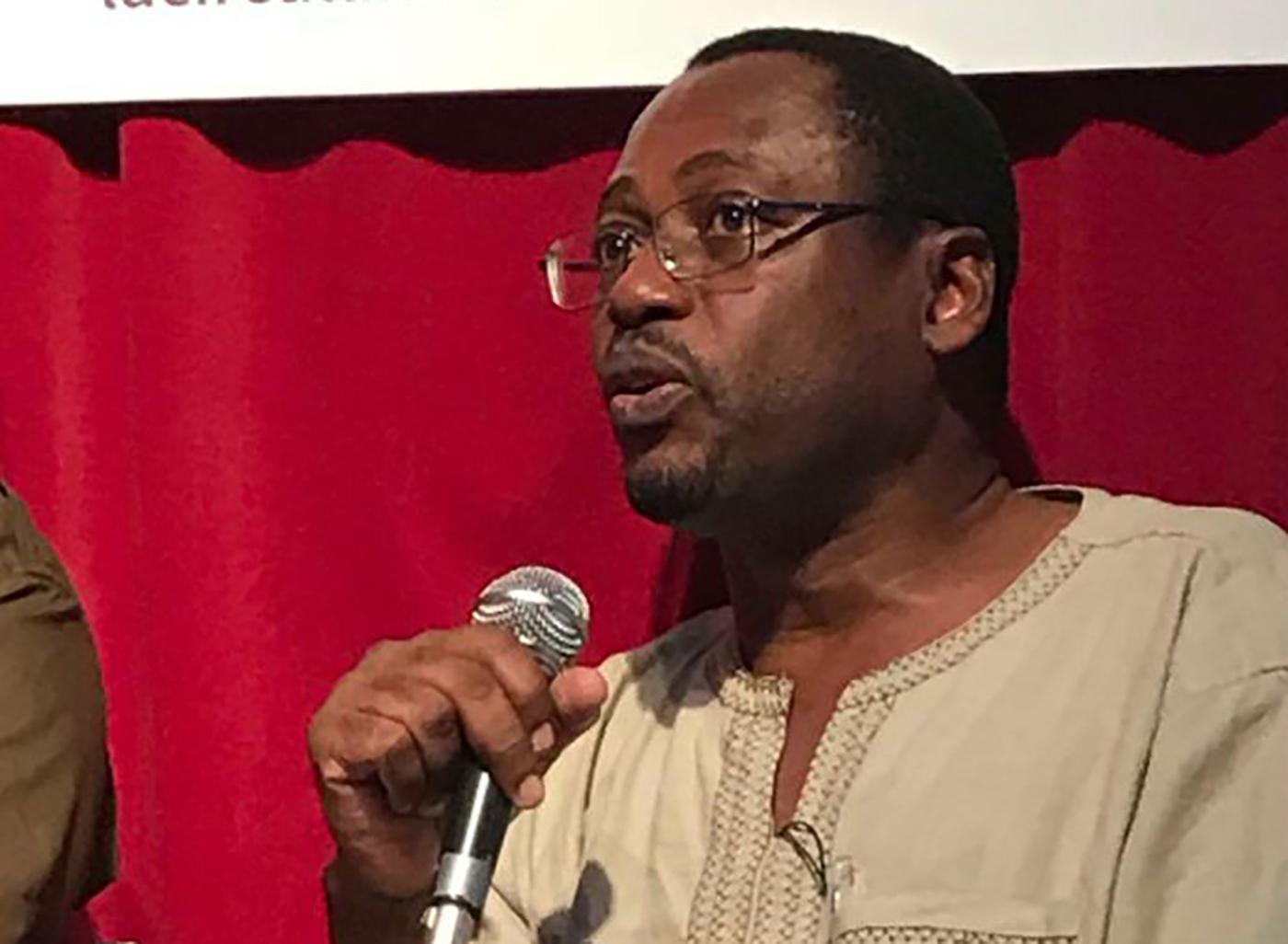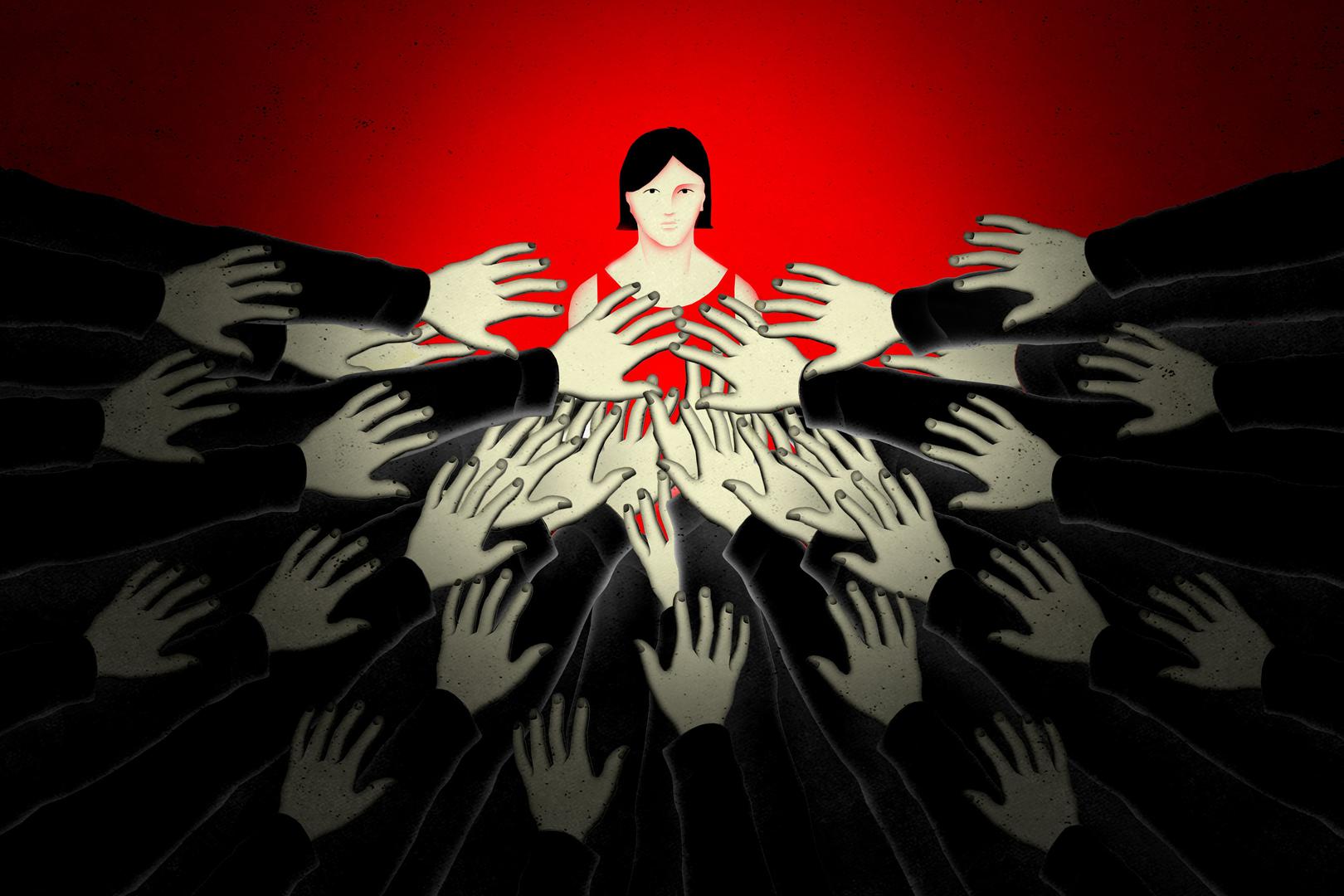The Israeli government continued to enforce severe and discriminatory restrictions on Palestinians’ human rights; restrict the movement of people and goods into and out of the Gaza Strip; and facilitate the unlawful transfer of Israeli citizens to settlements in the occupied West Bank.
Israeli forces stationed on the Israeli side of the fences separating Gaza and Israel responded to demonstrations for Palestinian rights on the Gaza side with excessive lethal force. Between March 30 and November 19, security forces killed 189 Palestinian demonstrators, including 31 children and 3 medical workers, and wounded more than 5,800 with live fire. Demonstrators threw rocks and “Molotov cocktails,” used slingshots to hurl projectiles, and launched kites bearing incendiary materials, which caused significant property damage to nearby Israeli communities, and, in at least one instance, fired towards soldiers. Officers repeatedly fired on protesters who posed no imminent threat to life, pursuant to expansive open-fire orders from senior officials that contravene international human rights law standards. In May, the United Nations Human Rights Council set-up a commission of inquiry to investigate the events in Gaza, with a view to identifying those responsible, including in the chain of command, and ensuring accountability.
The Israeli army also launched intermittent air and artillery strikes in the Gaza Strip, killing 37 Palestinians between March 30 and November 19, including at least five civilians. Palestinian armed groups fired 1138 rockets and mortars indiscriminately toward Israel from Gaza as of November 13, according to the Meir Amit Intelligence and Terrorism Information Center, a major increase over previous years, killing one person and injuring at least 40, including civilians.
Attempts to reconcile did not end the rivalry between Palestinian groups Fatah and Hamas. Both the Fatah-dominated Palestinian Authority (PA) in the West Bank and Hamas in Gaza arrested opposition supporters and other critics, and mistreated and tortured some in their custody. The Independent Commission for Human Rights in Palestine (ICHR), a statutory commission charged with monitoring human rights compliance by the Palestinian authorities, received 180 complaints of arbitrary arrest, 173 complaints of torture and ill-treatment, and 209 complaints of administrative detention pursuant to orders from a regional governor by PA security forces as of October 31. In the same period, the body recorded 81 complaints of arbitrary arrest and 146 complaints of torture and ill-treatment against Hamas security forces.
Israel continued to maintain its more than decade-long effective closure of Gaza, exacerbated by Egyptian restrictions on its own border with Gaza, limiting access to water and electricity (households in Gaza received power between four and five hours a day on average during most of the year). Israel also restricted access to medical care and educational and economic opportunities. In July, in response to the launching of incendiary kites from Gaza, Israeli authorities banned the shipment of most goods out of Gaza, limited entry to “humanitarian” items and temporarily reduced the fishing zone off the Gaza coast from six to three nautical miles, measures that amount to collective punishment. Gaza’s unemployment rate stood at 55 percent during the third-quarter of 2018, according to the Palestinian Central Bureau of Statistics, and 80 percent of Gaza’s nearly 2 million people depend on humanitarian aid.
Israeli authorities continued to expand settlements in the occupied West Bank and to discriminate systematically against Palestinians and in favor of settlers, in providing services, allowing freedom of movement, and issuing building permits, among other actions. During 2017 and the first eight months of 2018, Israeli authorities approved plans for 10,536 housing units in West Bank settlements, excluding East Jerusalem, and issued tenders for 5,676, as compared to approving plans for 4,611 units and issuing tenders for 592 units in all of 2015 and 2016, according to the Israeli group Peace Now.
Meanwhile, Israeli authorities destroyed 390 Palestinian homes and other property, forcibly displacing 407 people as of November 19, the majority for lacking construction permits that Israel makes nearly impossible for Palestinians to obtain in East Jerusalem or in the 60 percent of the West Bank under its exclusive control (Area C).
Gaza Strip
Closure
Israel’s near-total closure of the Gaza Strip continued to severely harm the civilian population.
The Israeli army limits travel out of Gaza to what it calls “exceptional humanitarian cases,” meaning mostly medical patients, their companions, and prominent businesspersons with permits. In the first eight months of 2018, the army approved only 60 percent of permit applications from Palestinians seeking medical treatment outside Gaza. In August, the Israeli Supreme Court found unlawful Israel’s practice of denying exit permits to “first-degree relatives of Hamas members.”
During the first 10 months of 2018, an average of about 274 Palestinians exited the Erez crossing each day, compared to the daily average of more than 24,000 in September 2000, according to the Israeli rights group Gisha. Outgoing goods in the same period, mostly destined for the West Bank and Israel, averaged 201 truckloads per month, less than 20 percent of the average 1,064 truckloads per month prior to the June 2007 tightening of the closure.
The limited supply of electricity in Gaza compromised the water supply, sewage treatment, and hospital operations. Shortages of fuel, needed to operate generators during power outages, stemming from various factors including disputes over payment for the power between the PA and Hamas and exacerbated by Israel blocking entry of fuel in July, led to the partial closure of several hospitals. As of October 31, 44 percent of “essential” medicines were completely depleted, according to Gaza’s Central Drug Store.
Israeli restrictions on the delivery of construction materials to Gaza and a lack of funding have impeded reconstruction of homes severely damaged or destroyed during Israel’s 2014 military operation in Gaza. About 17,700 Palestinians who lost their homes remain displaced. The Israeli government said that to prevent construction materials from being diverted by Hamas for military purposes, it would allow in only limited quantities under the supervision of international organizations.
Egypt also restricts the movement of people and goods at its border with Gaza at Rafah. Between January and April, an average of about 2,500 persons monthly crossed through Rafah in both directions, according to the United Nations Office for the Coordination of Humanitarian Affairs (OCHA). Egyptian authorities opened Rafah on a more regular basis beginning in May, with an average of 11,746 crossing monthly in both directions between May and October, but still a fraction of the average of 40,000 per month in the first half of 2013.
Israeli Actions in Gaza
As of November 19, lethal force by Israeli forces resulted in the killing of 252 and injuring of 25,522 Palestinians in Gaza, OCHA reported. Many of the injuries were life-changing, including hundreds of cases of severe soft tissue damage, some necessitating amputation of limbs. Most of the killings took place in the context of protests, where Israeli forces, following orders from senior officials, used live ammunition against people who approached or attempted to cross or damage fences between Gaza and Israel. Israeli officials rejected the international human rights law standard in policing situations that prohibits the intentional use of lethal force except as a last resort to prevent an imminent threat to life. They argued that live ammunition was necessary to stop breaches of the fences, which they claimed was a Hamas strategy to enable militants to kill or capture Israelis, without sufficiently addressing why lesser measures would not have worked.
Hamas and Palestinian Armed Groups’ Actions in Gaza
Attacks by Palestinian armed groups in Gaza, mainly indiscriminate rocket attacks, led to the injuries of more than 40 Israelis as of November 19. Hamas authorities continue to disclose no information about two Israeli civilians with psychosocial disabilities, Avera Mangistu and Hisham al-Sayed, whom they have apparently held for several years, in violation of international law.
In addition to regular arbitrary arrests of dissidents and torture of those in its custody, Hamas authorities have carried out 25 executions since they took control in Gaza in June 2007, though none in 2018, following trials that lacked appropriate due process protections. Courts in Gaza have sentenced 125 people to death in this period, according to the Palestinian Center for Human Rights.
Laws in Gaza punish “unnatural intercourse” of a sexual nature, understood to include same-sex relationships, with up to 10 years in prison.
West Bank
Israeli Actions in the West Bank
In the West Bank, including East Jerusalem, Israeli security forces fatally shot 27 Palestinians and wounded at least 5,444, including those suspected of attacking Israelis, but also passersby and demonstrators, as of November 19. In many cases, video footage and witness accounts strongly suggest that Israeli forces used excessive force. As of November 19, attacks by settlers injured 61 Palestinians and damaged property in 147 incidents, according to OCHA. Palestinians killed 10 Israelis, including six civilians, and wounded at least 58 in the same period in the West Bank in acts that Hamas sometimes praised; in one killing, its military wing claimed responsibility.
In April, an Israeli court sentenced to nine months in prison an Israeli border policeman caught on camera in 2014 shooting 17-year-old Palestinian Nadim Nuwarah from about 60 meters away when he appeared to pose no imminent threat to them. The conviction marked a rare exception to the pattern by which security forces and settlers who attack Palestinians and destroy or damage their homes and other property do not face prosecution.
Settlements, Discriminatory Policies, Home Demolitions
Israel continued to provide security, administrative services, housing, education, and medical care for more than 628,000 settlers residing in unlawful settlements in the West Bank, including East Jerusalem. International humanitarian law bars an occupying power’s transfer of its civilians to occupied territory. Palestinians in much of the West Bank have access to water, electricity, and other state services that are either more limited or costlier than the same services that the state makes available to Jewish settlers there.
The difficulty in obtaining Israeli-issued building permits has driven Palestinians to construct housing and business structures that are at constant risk of demolition or confiscation by Israel on the grounds of being unauthorized. The UN considers 46 Palestinian communities at “high risk of forcible transfer,” including Khan al-Ahmar, a village of 180 residents east of Jerusalem with a school serving 160 children from the community and five surrounding villages, whose demolition Israel’s High Court authorized in May. International law prohibits an occupying power from destroying property unless “absolutely necessary” for “military operations.”
Israeli authorities have also demolished the homes of families in retaliation for attacks on Israelis allegedly carried out by a family member, a violation of the international humanitarian law prohibition on collective punishment.
Freedom of Movement
Israel maintained onerous restrictions on the movement of Palestinians in the West Bank. OCHA documented 705 permanent obstacles such as checkpoints across the West Bank in July. Israeli-imposed restrictions designed to keep Palestinians far from settlements forced them to take time-consuming detours and restricted their access to their own agricultural land.
Israel’s separation barrier, which Israel said it built for security reasons but 85 percent of which falls within the West Bank rather than along the Green Line separating Israeli from Palestinian territory, cuts off Palestinians from their agricultural lands and isolates 11,000 Palestinians on the western side of the barrier who are not allowed to travel to Israel and must cross the barrier to access their own property and other services.
Arbitrary Detention and Detention of Children
As of October 31, according to Prison Services figures, Israeli authorities held 5,426 detainees for “security” offenses, including 3,224 convicted prisoners, 1,465 pretrial detainees, and 481 in administrative detention based on secret evidence without charge or trial. Almost all are Palestinian. Apart from those detained in East Jerusalem, most of the Palestinians detained in the West Bank, including those held for nonviolent expression, were tried in military courts. Those courts have a near-100 percent conviction rate. Israel incarcerates many West Bank and Gaza Palestinian detainees and prisoners inside Israel, violating international humanitarian law requiring that they not be transferred outside the occupied territory and complicating family visits.
As of October 31, Israel was detaining 220 Palestinian children, many suspected of criminal offenses under military law, usually stone-throwing. Israel denied Palestinian children arrested and detained in the West Bank legal protections granted to Israeli children, including settlers, such as protections against nighttime arrests and interrogations without a guardian present. Israeli forces frequently used unnecessary force against children during arrest and physically abused them in custody. In July, Israel released 17-year-old activist Ahed Tamimi after she served an eight-month sentence for slapping a soldier.
Palestinian Authority’s Actions in the West Bank
PA security services arrested dozens of journalists, activists and opposition members, tortured detainees, and dispersed nonviolent protests. On June 13, they violently broke up a protest in Ramallah against its policy towards Gaza, arresting dozens of demonstrators, beating some of them in custody before releasing them.
In April, the PA amended a cybercrime law passed the previous year following complaints by civil society groups. The amended law continues to grant the government vast authority to monitor and restrict online activity. The PA also blocked more than two dozen websites affiliated with Hamas and rival Fatah factions.
In March, the PA repealed legal provisions that stopped prosecutions of alleged rapists, or allowed convicted rapists to escape punishment, if they married their victims. The PA also prohibited reducing sentences for serious crimes against women including murder done in the name of “honor.” However, discrimination against women in personal status laws and gaps in accountability for domestic violence persisted.
Israel
In July, the Knesset passed the Nation State Law, a law with constitutional status that articulates for Jews alone the right of self-determination, makes it a national priority to build homes for Jews but not others, and revokes the status of Arabic as an official language of Israel. Israeli authorities continued to narrow the space for criticism of its policies toward Palestinians, denying entry into Israel of foreign nationals critical of Israeli policies. In May, Israel announced it was revoking the work visa of a Human Rights Watch official based in Jerusalem, claiming that he supported boycotts of Israel. Human Rights Watch, which takes no position on boycotts of Israel but urges businesses to end their involvement in West Bank settlements, challenged the revocation in a court case that as of early December was still pending. In May, Israeli police beat Jafer Farah, head of Mossawa, an advocacy group for Palestinians, while in custody after participating in a protest, breaking his leg.
Israel demolished homes of Palestinian Bedouin citizens who live in “unrecognized” villages in the Negev claiming that their homes were built illegally, even though most of those villages existed before the state of Israel was established or were created in the 1950s on land that Israel moved them onto.
The Israeli government continued the policy described by the interior minister at the time of making “miserable” the lives of the roughly 40,000 Eritrean and Sudanese asylum seekers present in the country who refused to depart. The government did so through restrictions on movement, work permits, and access to health care. After the UN High Commissioner for Refugees condemned Israel’s failure to properly process asylum claims, Israeli authorities in January said they would indefinitely detain thousands of Eritrean and Sudanese men if they refused to leave for Rwanda and Uganda. In March, the High Court confirmed that such a policy would be illegal as neither Rwanda nor Uganda had agreed to receive deportees. In response, Israel released all those detainees whom they were holding on the basis that they had refused deportation.
Key International Actors
In May, the US moved its embassy from Tel Aviv to Jerusalem, which it declared the capital of Israel, triggering Palestinian protests. The US slashed funding to the PA, though it allocated US$60 million in nonlethal assistance to PA security forces, and $3.1 billion in military aid to Israel for the 2018 fiscal year. In August, the US cut all funding to the United Nations Relief and Works Agency (UNRWA)—previously up to $350 million per year—which provides critical services, including education and health care, to children in the West Bank and Gaza.
The European Union called on Israeli authorities not to demolish Khan al-Ahmar and to use restraint in the Gaza protests.
The prosecutor for the International Criminal Court Office is conducting a preliminary examination into the situation in Palestine to determine whether the criteria have been met to merit pursuing a formal investigation. In May, Palestinian authorities formally referred the situation in Palestine to the court’s prosecutor.
The global tourism company Airbnb announced it would stop listing properties in Israeli settlements in the occupied West Bank, as part of a new policy to bar listings that contribute to “existing human suffering.”
The Office of UN High Commissioner for Human Rights continued its work to establish a database of businesses that have enabled or profited from settlements, which its due to publish before the March 2019 UN Human Rights Council session.

